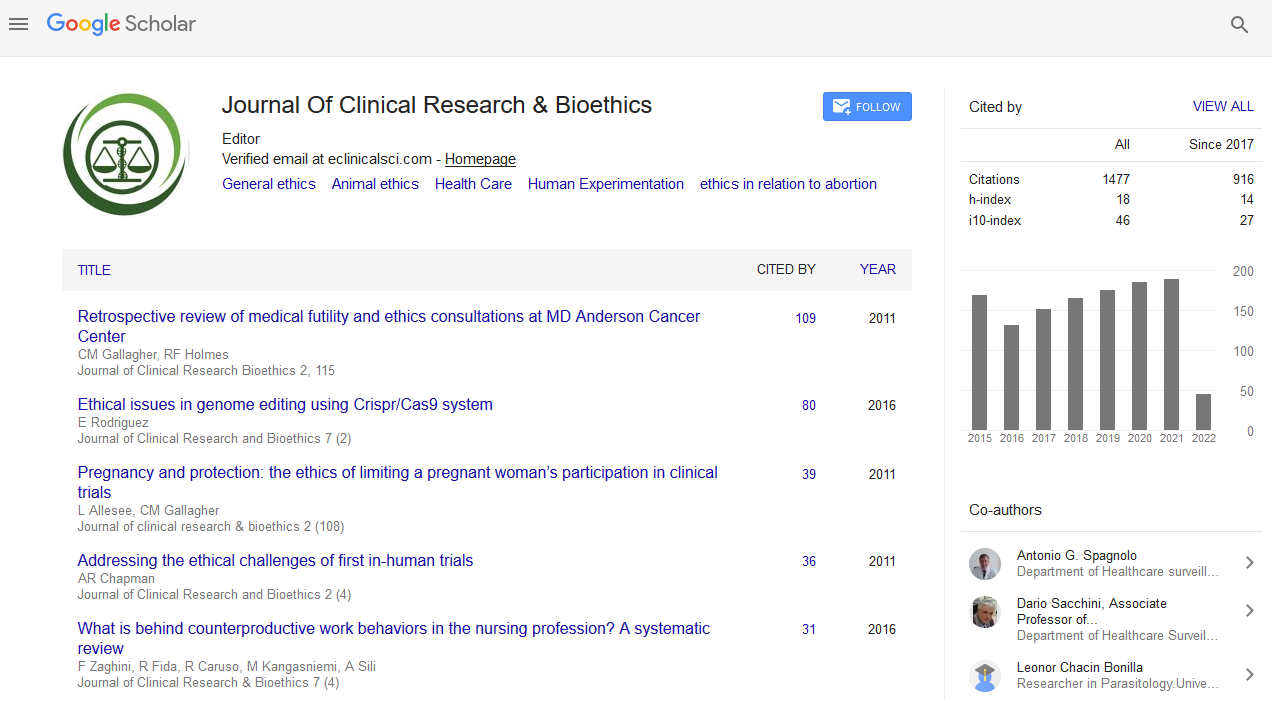PMC/PubMed Indexed Articles
Indexed In
- Open J Gate
- Genamics JournalSeek
- JournalTOCs
- RefSeek
- Hamdard University
- EBSCO A-Z
- OCLC- WorldCat
- Publons
- Geneva Foundation for Medical Education and Research
- Google Scholar
Useful Links
Share This Page
Journal Flyer

Open Access Journals
- Agri and Aquaculture
- Biochemistry
- Bioinformatics & Systems Biology
- Business & Management
- Chemistry
- Clinical Sciences
- Engineering
- Food & Nutrition
- General Science
- Genetics & Molecular Biology
- Immunology & Microbiology
- Medical Sciences
- Neuroscience & Psychology
- Nursing & Health Care
- Pharmaceutical Sciences
Abstract
Mottainai Embryos and the Earthquake
Takahashi S, Fujita M and Akabayashi A
Previously, we had done research on the decision-making process for the fate of surplus frozen embryos for Japanese infertile women and found that the decision is very emotionally difficult, stemming from cultural moral values such as “Mottainai.” Many leave this decision pending until they receive a letter that their embryo storage period is almost over. After the devastating earthquake on March 11, 2011, infertility clinics received numerous phone calls from patients asking whether their embryos were safe. Some medical staff, unaware of the motives behind these calls, was unable to be sympathetic and just responded by offering just information. The quake must have acted similarly to the letter of notice and initiated the decision-making process for many patients. Ironically, in ST’s (first author) personal life, she too has surplus embryos in storage. Being 36 weeks pregnant from a natural pregnancy and on maternity leave, she had forgotten about these embryos until the quake. Like the study patients, ST was faced with the difficulty of the decision. After having decided to continue storage, ST became naturally pregnant again twice. With the numerous aftershocks happening still, ST was constantly reminded of the final decision whether to transfer the embryos into her uterus or not. Recently her partner’s strong desire to dispose the embryos finally outweighed her desire to store them indefinately. Sympathetic psychological support by medical professionals is required for the emotional burdens of patients even before the final decision.


